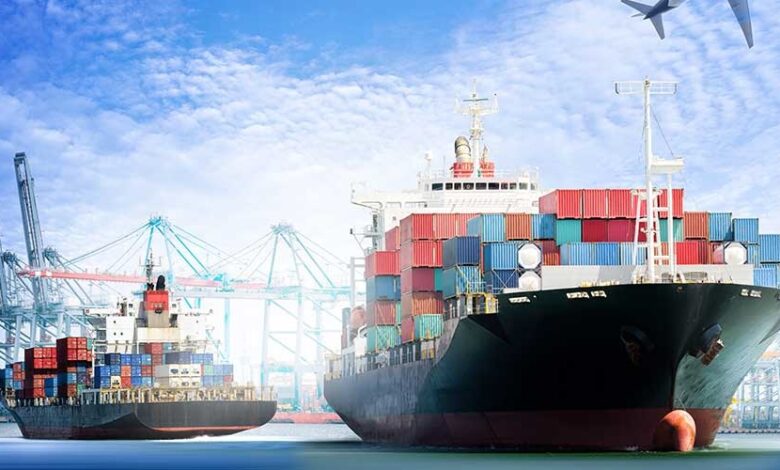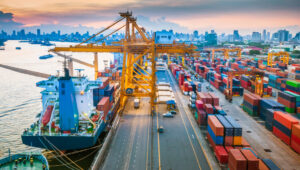
Transportation services will be discussed in this article. Why are these services important for your business, and how can they help you improve sales and services if used correctly? An efficient transportation system supports a country’s whole economic, social, and administrative life today.
Why Transportation Services Is Important For Your Business
In this article, you can know about transportation services here are the information below;
The advantages of transportation can be studied under the following categories.

A. Economic Benefits/Functions:
The economic impacts of good transport facilities are as follows:
1. Substantial Market:
Transportation aids in the assembly of basic materials as well as the distribution of the products. It allows things to be moved from production to where they will be received. Because of the lack of reliable transportation, there were only regional marketplaces in the past. Trade is no longer limited to a country’s borders; rather, it has spread from across world.
The advancement of effective transportation services has linked all of the world’s countries into a single global market. Even perishable small articles like fish, dairy products, meat, and so on are being transported to far-flung corners of the globe. Such progress in trade and business would not have been feasible without efficient transportation facilities.
2. Mobility of Labour and Capital:
The rigours of immobility of certain parts of production are reduced by transportation. With the improvement of transportation, labour and capital mobility grows. Individuals are motivated to move from one location to another by an efficient network of transport services.
Workers can migrate to a location with better job opportunities, reducing the risk of exploitation. Without immigration from Europe, Australia and the United States would not have progressed as far as they have. With the progress of transportation, capital investment is also being directed to new lands and other parts of the globe.
3. Specialisation and Department of Labour:
Transport allows each region and country to make the most of its national resources. Each region can focus on producing things that are best suited to its resources. As a result of the movement of things and people from one location to another, specialisation and labour division occur, leading to limited resource waste and lower production costs.
4. Economies of Large Scale Production:
The progress of large-scale industries has been aided by transportation. Without good transportation centres, these sectors would not have been able to obtain basic resources, gather a large workforce, and sell the finished products. As a result, transport has enabled various advantages of scales production, lowering production costs and supporting the economy.
5. Stability in Prices:
Transport services are provided. Smooth out the erratic fluctuations. Goods can be shifted from places where there is a surplus and the costs are low to places where there is a shortage and the rates are high. The mobility of such products helps to keep pricing uniform from across country, and it also helps to equal product costs around the world.
6. Advantages to Consumers:
Customers gain from improved transportation services in a variety of ways. Consumers can benefit from the opportunity to use a large number of products that are not produced locally by transferring such products from other locations. Moreover, it aids in the lowering of consumer goods costs and boosts their buying power.
7. Work Opportunities and Boost in the National Earnings:
Different methods of travel employ a large number of people all around the world. The growth of a country’s economy is dependent on improved transportation. As a result, transportation contributes greatly to an u.s. public economy.
8. Frustration to Monopoly:
The expansion of transport means broadens the scope of total profits. Local manufacturers cannot charge fees at their choice since goods can be swiftly transported from one region to another. Monopoly is prohibited, and competitors are encouraged.
9. Development of Farming:
Agriculture has benefitted from transport as well. Because of the efficient means of transportation, the agricultural items business has grown to such a huge amount. Modern agriculture technologies, improved seed and fertiliser quality, and other advances would not have been possible without good transportation systems.
10. Industrial Development:
Transportation helps in a country’s commercial development. It contributes to the growth of markets by supplying various components of production. It would have been impossible to attain such rapid industrial development without effective transport.
11. Boost in National Wealth:
Stations to a country’s national prosperity via helping with agriculture, industry, trade, and commerce.
B. Social Benefits/Functions:
Transportation has substantially influenced the lives of individuals.
The following are some of the different societal benefits of efficient transportation:
1. Discovery of New Lands:
Transportation has helped in the discovery of colonies as well as the growth of cities and urban areas. Because of the wide availability of low-cost long-distance transportation, the land has been used to the fullest extent practicable for the benefit of individuals all over the world. Even the wastelands are being utilised now. It also raises the value of the land. We often discover that the value of land located along the roadside, near a train station, or at a bus stop has soared dramatically.
2. Diffusion of the population:
It reduces population concentration in the production area. Individuals can go to remote locations if there is an appropriate and efficient transportation system in place.
3. High Standard of Living:
Transportation helps in the speed of production, hence boosting people’s living standards. The ‘5 M’s-men, material, money, machinery, and management’ may all be assembled at the production site easily by using transportation services. As a result, companies rely on an effective transportation system, which creates new markets.
It solves the range problem, enables people from distant locations to connect with one another, promotes the exchange of ideas and culture, and promotes cooperation and understanding among the world’s people.
5. Capability to Face Natural Calamities:
Natural disasters such as famine, earthquake, droughts, floods, and other natural calamities are made possible by transport. Commodities can be promptly transported to the scene of the incident in such an event.
6. Broadens the Outlook of individuals:
Transportation enables people to communicate with one another. It has broadened people’s perspectives around the world and brought all nations together.
7. Destroys Lack of knowledge:
It promotes culture, eliminates bias, and removes ignorance! It aids in the sharing of knowledge and the development of the academic goal.
C. Political Benefits/Functions:
Aside from financial and makes possible, transportation has immense political importance:
1. National Unity, Integration, and Peace:
Internal peace and national unity can be maintained with the help of transport. It results in national integration. Without effective transportation, a vast country like India cannot be held together. By promoting expertise and division of labour, transport increases economic and political interdependence, enhancing the need for national unity and integration.
2. National Defence:
Transport is important for a country’s national defence. Defense men, material, and equipment could only be transferred quickly to border sites in the early days of the war because to improved transportation methods. As a result, improved transportation services centres are needed for a country’s security.
3. Political Awakening:
Individual political awakening and cultural and moral growth are facilitated by efficient forms of transport.
4. Source of Profits:
Transport helps in increasing the national wealth and income of a country. It also serves as a source of revenue for the government.




